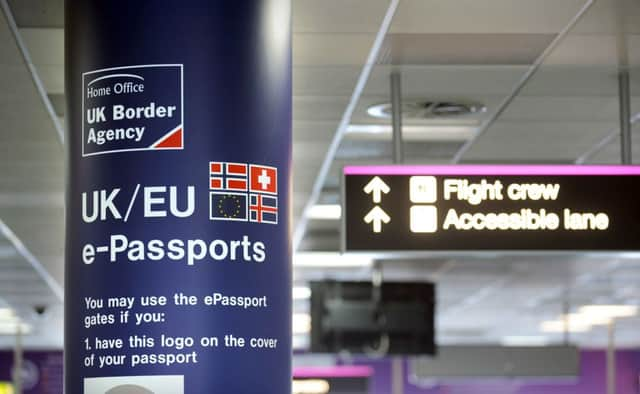Immigration to '˜remain high' if UK stays in EU single market
This article contains affiliate links. We may earn a small commission on items purchased through this article, but that does not affect our editorial judgement.


Net migration from the bloc would be unlikely to fall below 155,000 a year in the medium term in those circumstances, campaign group Migration Watch UK estimated.
Its paper said the scope for a “significant reduction” in the number was “extremely limited” if Britain remained a member of the single market, and thus subject to free movement of people.
Advertisement
Hide AdAdvertisement
Hide AdThe most recent official figures showed that total international net migration - the difference between the number of people arriving and leaving the country - was at a near record estimated level of 335,000 in the year to the end of June.
This is well above the Government’s target of less than 100,000. Net migration for EU citizens was estimated to be 189,000, the highest number recorded.
Britain is expected to seek controls on free movement in the wake of the referendum vote but the shape of any system is yet to be outlined.
Meanwhile, EU leaders have repeatedly insisted that the UK will not be allowed to remain in the single market without accepting its free movement of labour rules.
The paper from Migration Watch UK, which campaigns for tighter immigration controls, said: “It is not possible to be both a member of the European single market and in control of EU immigration.
“If the UK remains a member of the single market, EU migration will remain high and is unlikely to fall below 155,000 a year in the medium term.”
A substantial wage disparity between the UK and Eastern Europe will continue, despite the recent devaluation of sterling, according to the analysis.
It identified continued high rates of youth unemployment in Southern Europe as a further factor.
Advertisement
Hide AdAdvertisement
Hide AdAlp Mehmet, vice chairman of Migration Watch UK, said: “This research spells out the very serious consequences for our society of net migration continuing at its present scale with membership of the single market resulting in a relentless increase in our population.”